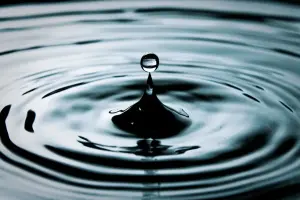The human body is made up of approximately 60% water, making it essential for various bodily functions such as regulating body temperature, maintaining blood pressure, and removing waste
It is advisable to imbibe a copious amount of water on a daily basis to maintain optimal health and hydration. The amount one should consume varies depending on factors such as age, gender, and level of physical activity.

As a general rule, it is recommended to drink at least eight 8-ounce glasses of water per day. It is a total of 64 ounces or about 2 liters. This equates to approximately half a gallon. However, some individuals may require more or less depending on their specific needs.
For instance, individuals who engage in strenuous physical activity or live in a hot climate may require additional hydration to replace lost fluids. On the other hand, individuals with certain medical conditions or who are taking certain medications may need to limit their water intake.
Numerous health benefits
It is important to note that the consumption of water does not only come from drinking plain water. Many foods and beverages, such as fruits and vegetables, contain high amounts and can contribute to daily hydration.
In addition to maintaining hydration, consuming an adequate amount of water can also provide numerous health benefits. It helps to regulate body temperature, lubricate joints, and aid in digestion and metabolism. It also helps to flush toxins and waste from the body, promoting healthy kidney function.
Furthermore, staying hydrated can improve cognitive function and energy levels, as well as promote healthy skin and hair. Dehydration, on the other hand, can lead to symptoms such as dizziness, fatigue, and headache.
In conclusion, it is essential to incorporate a bountiful amount of water into one’s daily routine to maintain proper hydration and overall health. However, everybody is different and individual needs may vary. But a good starting point is to aim for at least eight 8-ounce glasses of water per day.

